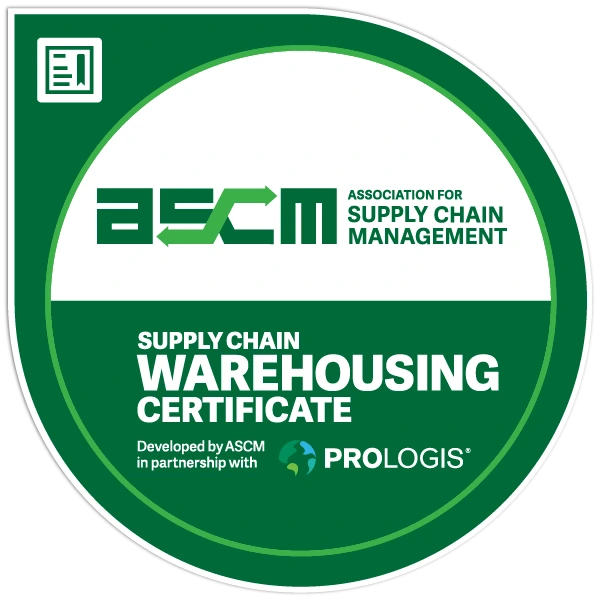If you’re seeking to elevate your career in logistics or sharpen your warehousing skills, a Supply Chain Warehousing Certificate could be your gateway. With the modern supply chain evolving rapidly, certified professionals are in high demand—especially those who can optimize warehouse design, integrate smart technologies, ensure safety, and apply lean methodologies.
This article explores everything you need to know about supply chain warehousing certification: its benefits, structure, learning outcomes, and how it can reshape your career trajectory.
What is a Supply Chain Warehousing Certificate?
A Supply Chain Warehousing Certificate is a professional credential that validates your expertise in warehouse management. It covers core competencies including:
- Warehouse layout and design
- Material handling systems
- Inventory control
- Warehouse safety protocols
- Warehouse technologies (WMS, RFID, automation)
- Lean warehousing and continuous improvement
This certification is typically offered by accredited institutions or organizations like APICS (ASCM), CSCMP, or specialized logistics training providers.
Why Get Certified in Warehousing?
Here are key reasons why pursuing this certification is a smart move:
- Career Advancement: Employers value certified professionals who understand both strategy and operations.
- Higher Salary Potential: Certified logistics professionals often command higher compensation.
- Future-Proof Skills: With AI, robotics, and IoT reshaping logistics, staying ahead is critical.
- Compliance & Safety: Certifications emphasize workplace safety and regulatory adherence.
- Global Recognition: Many certifications are globally accepted, increasing your employability across borders.
What Will You Learn?
An advanced Supply Chain Warehousing Certificate typically includes:
1. Warehouse Layout Design
- Zoning and space utilization
- Dock planning
- Flow optimization
2. Safety and Compliance
- OSHA standards
- Fire safety and ergonomics
- Risk assessments and audits
3. Warehouse Technology Integration
- Warehouse Management Systems (WMS)
- RFID, barcoding, and tracking systems
- Automation and robotics in warehousing
4. Lean Warehousing Practices
- 5S methodology
- Waste elimination (TIMWOOD)
- Continuous improvement (Kaizen)
5. Performance Metrics & KPIs
- Order accuracy, fill rate, inventory turnover
- Cost-per-order and productivity ratios
Who Should Take This Certificate?
This certificate is ideal for:
- Warehouse supervisors and managers
- Logistics and operations coordinators
- Supply chain analysts
- Industrial engineers
- Aspiring professionals transitioning into logistics
Whether you’re a beginner or experienced, this program adapts to your level.
Benefits to Employers
Companies benefit by having certified staff who:
- Reduce warehouse operating costs
- Improve order fulfillment and customer satisfaction
- Ensure workplace safety and compliance
- Accelerate digital transformation of warehouse operations
FAQs: Supply Chain Warehousing Certificate
1. How long does it take to complete the certification?
Most programs take between 2 to 6 months, depending on the provider and whether it’s self-paced.
2. Is a warehousing certificate worth it?
Yes. It boosts your credibility, enhances your resume, and opens doors to leadership roles in logistics and operations.
3. Can I get certified online?
Absolutely. Many leading institutions now offer fully online or hybrid programs with hands-on simulations.
4. What’s the difference between a logistics and a warehousing certificate?
A logistics certificate covers broader topics like transportation and global supply chain strategy. A warehousing certificate dives deep into warehouse operations, design, safety, and optimization.
5. Will it help me get a job?
Yes. Roles like warehouse manager, inventory control specialist, supply chain coordinator, and fulfillment analyst often require or prefer certified professionals.
Final Thoughts
A Supply Chain Warehousing Certificate is more than a credential—it’s a signal that you’re equipped for the future of logistics. From lean layout design to tech-driven operations, the skills you gain are invaluable in today’s fast-paced supply chain world.
Whether you’re upskilling or starting fresh, now is the time to invest in your logistics career.
Start Building Your Expertise Today
Explore programs, compare options, and choose a certification that aligns with your career goals. Warehousing is no longer just about storage—it’s about strategy.








No comment